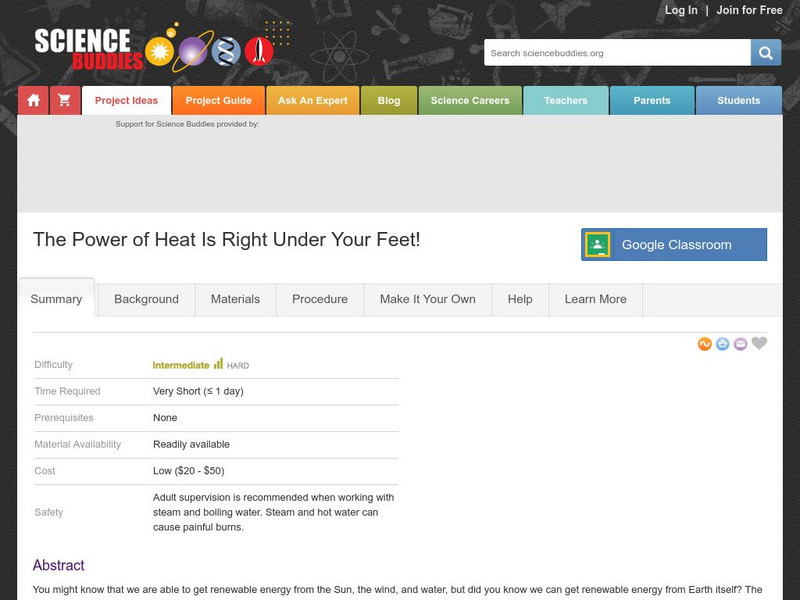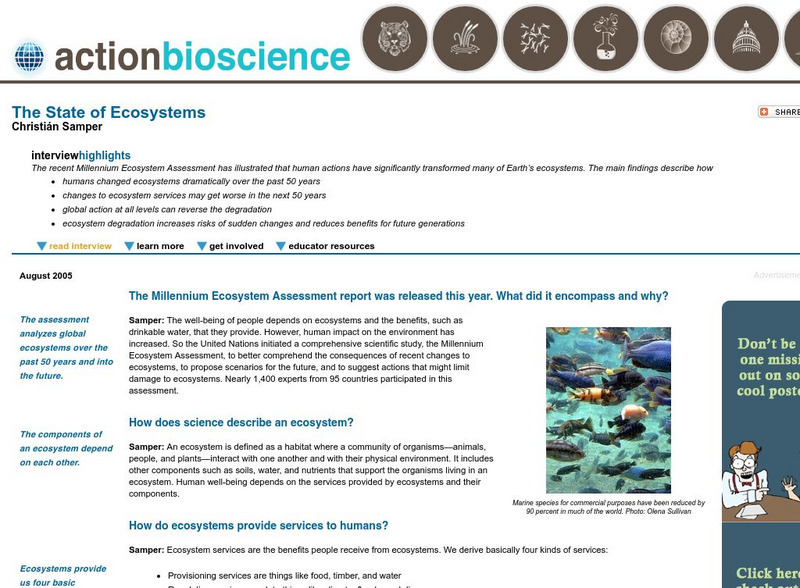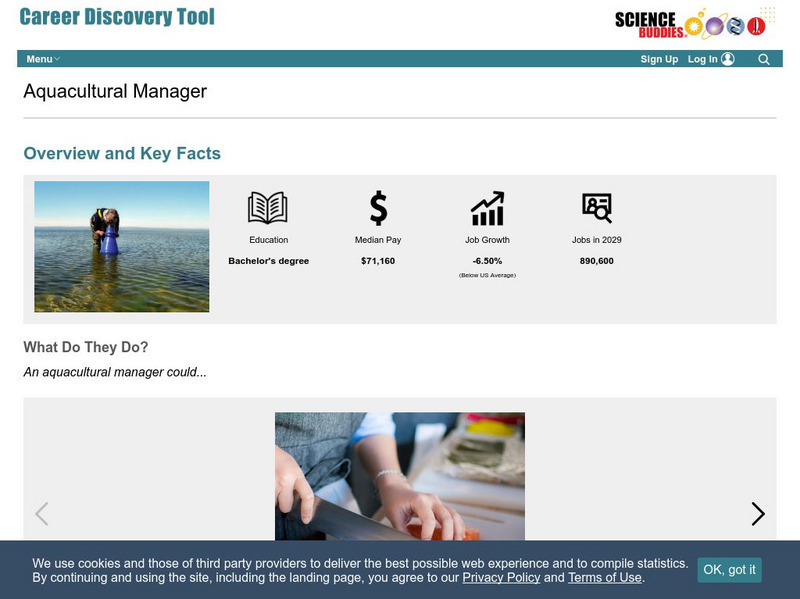Science Buddies
Science Buddies: The Power of Heat Is Right Under Your Feet!
You might know that we are able to get free energy from the Sun, the wind, and water, but we can also get free energy from Earth itself. This source of energy is called geothermal energy and it is all about taking advantage of the heat...
TeachEngineering
Teach Engineering: Solar Power
Students learn about solar energy and how to calculate the amount of solar energy available at a given location and time of day on Earth. The importance of determining incoming solar energy for solar devices is discussed.
American Institute of Biological Sciences
Action Bioscience: The State of Ecosystems
Christian Samper details The Millennium Ecosystem Assessment, a report highlighting the detrimental impact of human life on the ecosystems of Earth over the past fifty years. Ecosystems have been deteriorating from a variety of waste and...
Georgia Department of Education
Ga Virtual Learning: Ap Environmental Science: Introduction
An introductory module with interactive activities, class notes, lab activities, and review questions which cover advanced placement environmental science concepts.
TeachEngineering
Teach Engineering: Environmental Challenges in China
Students learn about the wonderful and fascinating country of China, and its environmental challenges that require engineering solutions, many in the form of increased energy efficiency, the incorporation of renewable energy, and new...
US Geological Survey
Usgs: Materials Flow and Sustainability [Pdf]
This site is a fact sheet that uses illustrations to review the steps minerals go through to be made into useable products, and also how some materials can be recycled and returned to the environment.
Other
Planet Ark: World Environmental News
Welcome to Planet Ark's daily Reuters World Environment News - the most comprehensive source of environmental news on the Net. To read previous news stories, please use the search engine below to find stories relating to any...
Science Buddies
Science Buddies: Career Profile: Aquacultural Manager
Be an aquacultural manager and be involved in fish hatcheries, sustaining seafood catches, or work in the management of fish farms. Find out the requirements for this career, read an interview with a hatchery manager, and watch a video...
Ducksters
Ducksters: Science for Kids: Carbon Cycle
Kids learn about the carbon cycle and how this nutrient travels through the ecosystem to sustain life on Earth.
University of California
University of California Irvine: Evolution of Mammals
A strong, comprehensive look at the evolution of mammals. Includes factors such as changing geologic structure of the earth and the different types found on different continents.
Geographypods
Geographypods: Theme 1: Population and Settlement
A rich collection of highly engaging learning modules on topics related to population and settlement. Covers six main areas - population growth, population change, population migration, land use, settlement characteristics and patterns,...
US Department of Energy
U.s. Department of Energy: Energy Basics: Renewable Energy: Geothermal
Find out about renewable energy resources using geothermal technologies as the source. Learn how scientists have discovered how to utilize sustainable heat from the Earth using several methods.
Ducksters
Ducksters: Science for Kids: Nitrogen Cycle
Kids learn about the nitrogen cycle and how this nutrient travels through the ecosystem to sustain life on Earth.
Ducksters
Ducksters: Science for Kids: Oxygen Cycle
Kids learn about the oxygen cycle and how this nutrient travels through the ecosystem to sustain life on Earth.
Other
Newport: Introduction to Solar Radiation
Radiation from the sun sustains life on earth and determines climate. The energy flow within the sun results in a surface temperature of around 5800 K, so the spectrum of the radiation from the sun is similar to that of a 5800 K...







![Usgs: Materials Flow and Sustainability [Pdf] Activity Usgs: Materials Flow and Sustainability [Pdf] Activity](https://d15y2dacu3jp90.cloudfront.net/images/attachment_defaults/resource/large/FPO-knovation.png)







